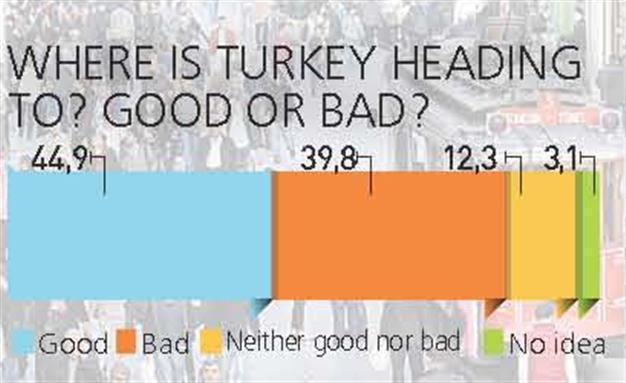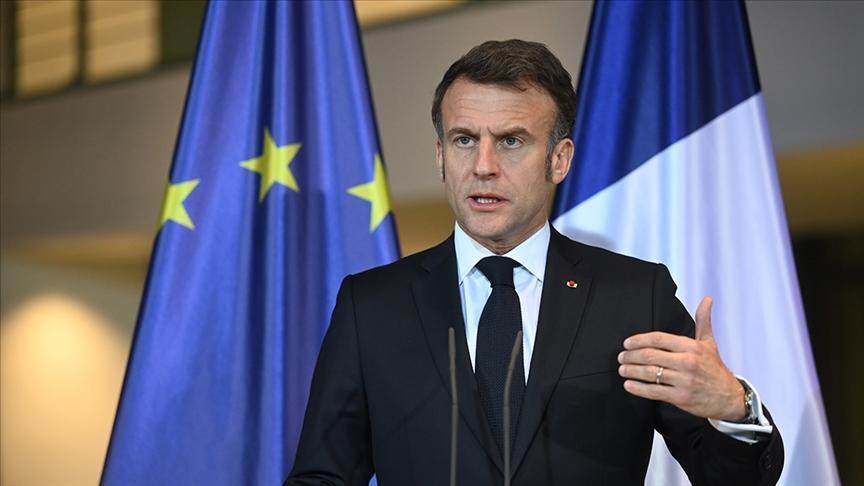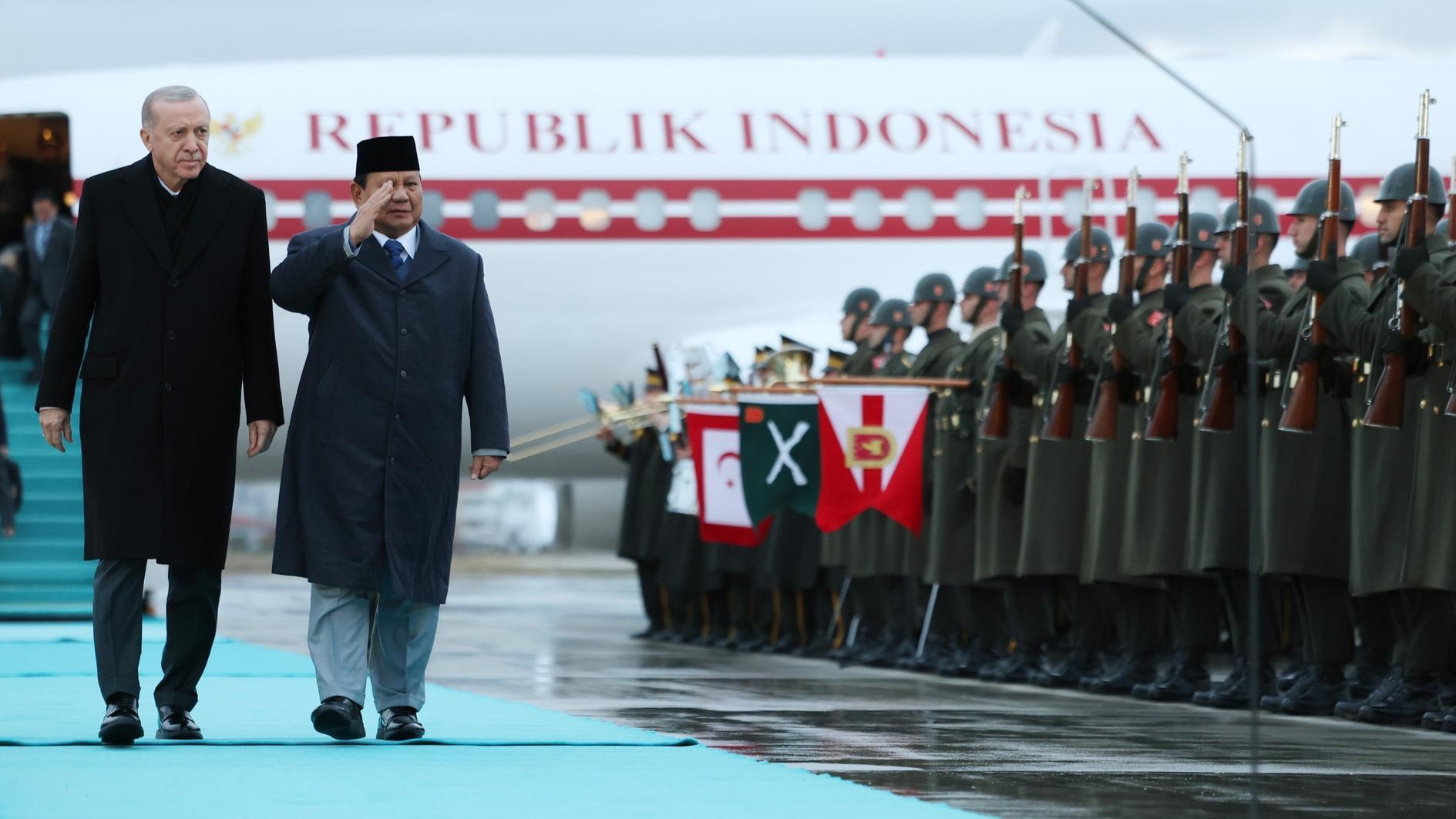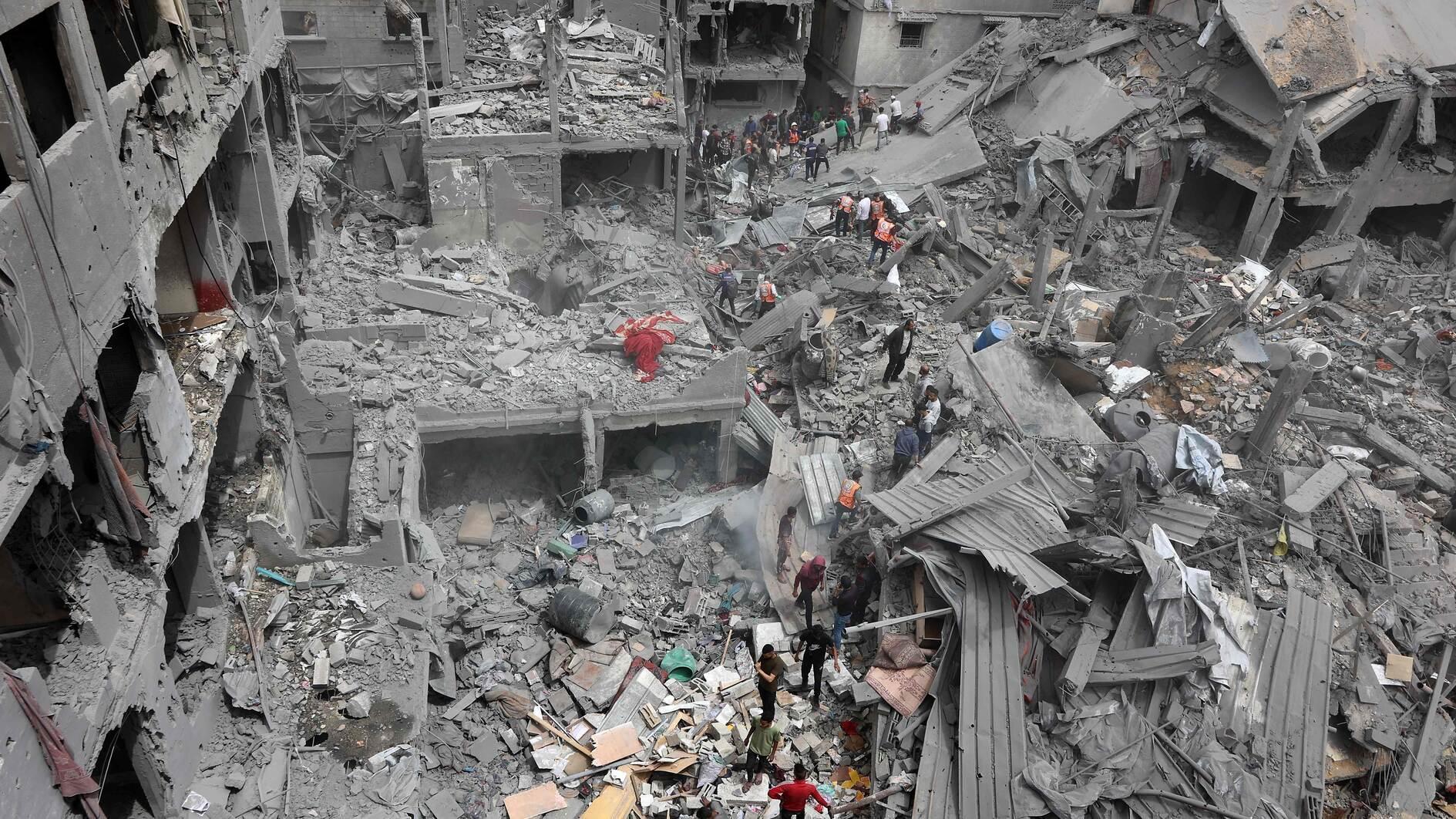Turkey wants more democracy: Survey
ISTANBUL – Radikal

According to a public opinion poll, 49.5 percent of supporters of the ruling Justice and Development Party (AKP) said the package was 'insufficient.'
The Turkish government’s recently unveiled “democracy package” is deemed "sufficient" by only 48 percent of the country, according to a poll, while respondents are divided over a question of whether the country is getting better or worse.According to the public opinion poll conducted by Metropoll Strategic and Social Research Center with 1,200 people in 31 provinces, 49.5 percent of supporters of the ruling Justice and Development Party (AKP) said the package was insufficient, while the number was around 80 percent among the supporters of the three main opposition parties, the Republican People’s Party (CHP), the Nationalist Movement Party (MHP) and the Peace and Democracy Party (BDP).
On the other hand, a majority supports the government’s democratization steps.
The research still indicates that the reforms announced as part of the package, such as education in Kurdish, freedom to use letters such as ‘Q,” “W” or “X” or permission for headscarves for public servants, have substantial public support.
While 40 percent of Turkish society says they see the situation in the country as deteriorating, 45 percent says it is improving. Seventy-three percent of AKP supporters see the country as going well, while CHP and MHP supporters feel the situation is worsening. As for the BDP voters, 48 percent are optimistic about the country’s future, while 38 percent are negative.
The government’s lifting of the headscarf ban in public institutions as part of the democracy package was one of the most favored articles in the reforms, with 76 percent supporting the decision.
Asked about the ruling that the former names of Kurdish villages in Turkey’s southeast can be reinstated, 58 percent said they supported the move, while 27 percent opposed it. Remarkably, 49.2 percent of MHP voters also supported the decision.
The government’s paving the way for private schools to educate in Kurdish was one of the divisive factors, with 48 percent saying they were for it, while 42 percent were against it.
Two issues that were expected to be included in a future package, the official recognition of Alevis’ worship places, cemevis, and the reopening of the Halki Seminary on Heybeliada, also netted public support. Fifty-four percent are in favor of the reopening of the seminary, while 63 percent support the state recognizing cemevis as houses of worship.
The strongest opposition was toward the government’s lifting of the primary school oath uttered by Turkish schoolchildren at the beginning of every school day. Fifty-three percent of respondents said they opposed the move, while one-third viewed it with favor.
















